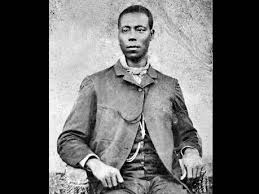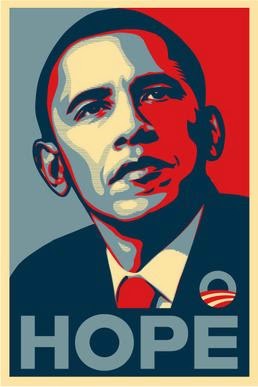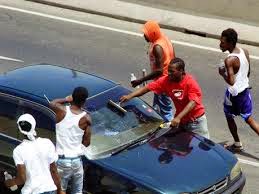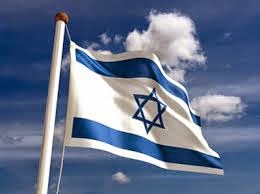Category: Jamaican Society today
This category captures my thoughts on various aspects of society and justice in Jamaica
What does Independence Day Mean to You?
The Broken Windows Theory & Policing in Jamaica: “To protect, Serve and Reassure…those who matter”
The Visit: Yes We Can Clean Up Kingston (apparently!)
“All of Jamaica (that matters) is Here” Diner en Blanc, Kingston, Jamaica.
 |
| Photo courtesy of Diner en Blanc, Kingston’s FaceBook Page |
Independence: Nothing more than a warm and fuzzy feeling at best. Remembering Tisha.
I’m sad. In 1962 Jamaicans were hopeful as we claimed our independence from Britain. It is 2015. Here we are. It makes the news when an eternally malfunctioning elevator at the public hospital in Kington is fixed. Horror stories, almost unbelievable, about the absence of basic medical supplies in the public health system become a daily fixture on radio talk shows. Bombarded with one political scandal after another (think Trafigura, Cuban Light Bulb, Manat-Phillips-Phelps, Finsac, Tivoli incursion to name a few) our numbness renders us impassive to constitutional breeches that could have serious repercussions down the road. If you’ve ever been the position of having to find suitable hires, then I need not regale you with how the educational system has failed. We have had rehashed anti-crime programmes thrust upon us ad naseum, with nothing but rising crime, more sophisticated in its organisation. The generation before my own has failed, and I suspect that my own children will say that we have failed them too. We haven’t fought for better. We have tolerated mediocrity, and some of us have been complicit when it suited a personal agenda.
This morning I remembered Tisha*. Tisha was a HEART trainee with the organisation. She was quiet and diligent. She was well spoken and shy. One morning she brought some documents to my office for my signature. She greeted me with her quiet voice and pleasant smile. As I scanned the documents and signed, we began talking. I am a prober by nature. I stopped signing and sat back. She had caught my attention with her thoughtful, well constructed answers to my probing. It turned out that Tisha had 10 CSEC subjects, sciences included. Yet here she was, a filing clerk in a programme that demanded no more than 4 CSEC subjects.
“I wanted to go to 6th form to do A levels and then head on to University to do medicine. But my family couldn’t afford it. My father told me that it was time for me to get a job and do my part.”
I probed further.
“I wanted to do medicine” she explained with a sad smile.
“So what is your plan B then?” I insisted.
Tisha was stumped. The notion of a plan, much less a plan B had never occurred to her.
“Listen” I said…”Med school may be out of your reach. Let me be honest with you. But that does not mean that you have to put all professional aspirations on hold. If I told you that you could go to University, but that you couldn’t do medicine, what would you do?”
“Accounts” she offered.
“Now we can plan!” I said excitedly.
“But I have to have A levels” she said worriedly.
“No, no, no! To do A levels now would add years and cost to your journey. Here’s what you can do: get out of this HEART internship and get a real job. Then apply to UTECH. Then apply for a student’s loan.”
We had the start of a plan. Every week I’d check with Tisha re: the job hunt. In about 2 months she told me that she had a firm offer that would pay her much more than the HEART position. I guided her with respect to the timing of the resignation from HEART. I took her to the Students Load Bureau and guided her application to UTECH.
Tisha moved on. I heard that she was doing a degree in Business Admin at UTECH and I rejoiced. Tisha had been suffering a double whammy: lack of resources and lack of guidance.
I ran into Tisha about 4 years later at the public library. We embraced, and then she introduced me to her toddler daughter shyly. I cut straight to to chase: “So did you finish your degree?”
“No” she replied softly, head down. “I had one more year to do, but I had to stop.”
I encouraged her to enquire about the possibility of doing it part-time, and of the need to marshal all her resources into completing that degree.
I never kept in touch. I hope her story ended well.
Free education was never really free. As a nation we never defined how education would be paid for. The result has been a diminishing quality of product year after year after year.
Decades after so called independence, our safety nets and support structures for a marginalized population are not at all robust. Our young lack opportunities and guidance. Independence bestowed a warm and fuzzy feeling. Not a thing more.
What next then?
I suspect that we will have to an about face for better to come. The current trajectory, be it green or orange will continue the descent into poverty, inequity and hopelessness.
*name changed
The Slave Trade, Maroons, Windscreen Wipers and Reparations: I want to know.
The white man was aided and abetted in getting us to this side of the world. He went in with shiny baubles and found willing helpers all along the west coast of Africa. Slavery, we were taught, was not new in the motherland. Triumphant tribes dominated hapless members of the defeated tribe and put them to work. When pale skinned humans on huge boats showed up on Her shores, armed and heavy laden with trinkets, it would seem that our brothers thought little of handing their own conquests over to these strangers in exchange for bounty from the strangers.
 |
| Accurate representation of what happened in West Africa or not? |
Those of us who survived the horror of the Middle Passage and the rough initiation into work and torture and rape and destruction of familial ties on the Pale Skinned’s plantations were about to face yet another betrayal. Some intrepid warrior-slaves fled the plantations in Jamaica and headed for the hills. In that mountainous, beautiful terrain, communities of these braves lived and hid and warred with the British militia. Their survival was due in large part to their own skill at bush and jungle war craft. Legendary members of this mountain community live on today in poems and stories of their exploits: Tacky the Chieftain, Three Finger Jack and Nanny of the Maroons, herself a national hero of Jamaica.
Jamaican Maroons are often described as enslaved Africans and persons of noticeable African descent who ran away or escaped from their masters or owners to acquire and preserve their freedom.
But their survival was also due to agreements that they made with the British. These fearless braves secured their own survival at the expense of other runaway slaves who were seeking a way out of slavery and who also headed for the hills. They handed over these their brethren to the British as a peace offering.
 |
| What was the full story of the Maroons and their relationship with the British? |
Consider too the story of another one of Jamaica’s national heroes, Paul Bogle. Paul Bogle led a protest against harsh economic conditions. He marched with a throng to the courthouse in Morant Bay. The British authorities of the day there panicked, responded with undue force, and it was at this stage that the protest morphed into a rebellion. Lives were lost in the upheaval. And the Maroons were the ones who captured Bogle and handed him over to the British. Paul Bogle was hanged the very next day.
 |
| Paul Bogle, National Hero |
To be sure, there is great controversy today over Maroon history in Jamaica. I certainly do not have the answers. And I am mindful of the absolutely true sentiment:““Until lions have their historians, tales of the hunt shall always glorify the hunter”.
Still I ask: what role did our own really play in our history, in our enslavement by Europeans, in our forced journey to the west?
Any discussions about the evils of slavery and its reverberations right into 2015 society must contemplate this question. I do not pose this question in a bid to excuse the white man or to in any way diminish what he did. The white man was the architect of this evil scheme to enrich himself and his own homeland at the expense of the lives, culture and humanity of the peoples of Africa. But full resolution never happens outside of the anything the full truth. The truth in all its uncomfortable, awkward glory is what I seek.
We were heading towards Downtown Kingston yesterday, H and I. It was a rare occasion that found us traveling together to work. I had just dropped my own car at the dealer for servicing and he graciously consented to pick me up there and drop me to work. The courtesy shuttle offered by the dealer would have seen me getting to office perilously close to 9:30am when I had a scheduled meeting. In the vicinity of Three Miles, the usual swarm of windscreen wipers made their way hungrily through the throttling cars in the traffic. Every single morning, I, the lone person, the lone female in my car tell them “NO”. They beg, they press up against my window, they beg some more, I keep saying “NO.” They approached H’s big, black, heavily tinted truck. He barely shook his head indicating no, he opened not his mouth, they didn’t miss a beat and kept moving right along. I cussed and railed. These windscreen wipers had obviously looked at my sex and my car and decided that they would try with all their might to extract money from me. Their quest for money was not based on the principle of “I need, they all have, let me beg all.” Their quest for money was selective, based on who they perceived was a soft touch and who had money to give them.
Is the quest for reparations fair then? Peoples of African descent this side of the world justifiably seek reparations from former European slavers and colonisers, not unlike the Jews seeking (and getting) restitution from Germany as a result of the Holocaust. But without answers to the question of the role of our African brothers in Africa getting us onto the white man’s slave ships, and without answers to the role of the Maroons in our own history here in Jamaica, is our demand for reparations really based on principle? Are we merely going where we think the money is?
Look, I don’t know the facts. There are people who have offered reasonable explanations about the role of Africans in the slave trade. I also know that Africa is not a country. But I think that political boundaries notwithstanding, there ought to be a natural unity amongst the black peoples of Africa. I also know that the Maroons were a source of trouble for the British slavers and colonizers, killing, marauding, burning and destabilizing the government and structures of the day. They also inspired many of their African brethren with their radical bravery and cunning against the establishment.
But, I am not convinced that we have answered head-on the question I posed earlier: what role did our own really play in our history, in our enslavement by Europeans, in our forced journey to the west?
I want to know.
Justice, Truth be Ours Forever…What does Justice look like?
Poor Governance… What are our options?
I was frustrated with the present government. I watched our Prime Minister deliver the main address at the PNP annual conference. I listened carefully. “So this is as good as it gets with the PNP? What are our options?” I was desperate for an alternative. But when I looked across to “greener” pastures, that hope dimmed. I blogged then about our need for a credible alternative, and opined that in their present state, I did not think that the JLP was much of a choice. I begged the JLP. I pleaded with them.
I was challenged, on separate, unrelated occasions by two people that I think highly of, whose opinions I respect, to think carefully about what I was saying. Their common thesis was “how can a credible alternative reside in another creature of the same system?” (my words). Think about it. How different are the JLP and the PNP really? Was I looking for mere respite or was I in search of a systemic fix?
In May 2010, under a JLP government, turmoil in the community of Tivoli, itself a JLP garrison, resulted in 72 civilians being killed. Having initially resisted an extradition order for “community leader” Christopher Coke, then PM Golding eventually capitulated and ordered the security forces to enter Tivoli, where it was thought he was hiding, and extract Coke for hand over to the US authorities. Conflict arose when the security forces came smack dab against resistance from elements in Tivoli. The entire city remained on lock down for a few days. Property was destroyed. People died. The nation and the world were appalled at what happened.
 |
| The Don Reigns Supreme |
 |
| What were these barricades supposed to do? Who erected them? |
 |
| Security Forces Ordered In… to do what exactly? What was their mission? |
The Tivoli COE: Facing what’s in the Mirror
We are now into the second week of the Tivoli COE and I am disturbed.
 |
| Maiden Cay |
 |
| Hellshire |
From Day 1 of the enquiry, I have grappled with this observation:The COE is being conducted in two languages. For the most part, the people giving testimony are doing so in Patois, but the lawyers are questioning in English. The need for clarification has come up repeatedly. Conflict between the written statements of the witnesses and what they are actually saying in the enquiry come up over and over again. You see, the people speak only Patois. But their written statements are in English. Are the discrepancies evidence of lies or are they misalignments, “lost in translation” as it were ?
What does Justice Look Like?
Consider this: Garrisons and Dons are a construct of the Politician. It was a way of securing and mobilising large blocks of votes in order to secure power. Both the PNP and the JLP have associated garrisons and dons.
Over time, the Don has evolved beyond the politician as his power source. He amassed wealth through his own means and wielded influence outside of the Politician.The balance of power shifted. The Politician now had to kowtow to the Don in order to keep his voting blocks secure.
The same Politician who birthed the Don and the Garrison, is the same Politician who sent in the Security Forces in the face of pressure and embarrassment. When the people demonstrate loyalty to their new boss the Don, and people die, that same Politician convenes a Commission of Enquiry to do what? Elicit truth? Seek justice? Justice for whom? And what does that justice look like?
Don’t seek to differentiate between JLP and PNP. The scenario that played out in May 2010 and the COE in 2014 could well have happened in another garrison, with different administrations playing alternate roles.
The Solution cannot reside with either the PNP or the JLP
Toggling between the JLP and PNP has landed us here. Their antecedents are the same. Their mechanisms are the same. Only the individuals differ.
The move from slavery to being a freed people under Britain, to becoming an independent nation took many years. It took challenging to laws of the day and agitating for change to move us along that trajectory. It took demonstrations. It took representation at the highest levels. Perhaps we just got too unwieldy and expensive for Britain to keep us on as a colony. Once we decided what we wanted however, we had to go after it.
Perhaps Jamaicans will have to challenge the status quo in similar fashion… how else will the systemic issues that allow successive governments to build and secure enclaves and plunder and hide and lie and reward loyalty change?
So What does justice look like?
The Jamaican middle class, the “Articulate Minority” stretched and growled in unprecedented manner the other day. Offended at the casual dismissal by a senior government official in seeking to differentiate between veranda talkers and tweeters here in Jamaica, and the voting, political base that keeps governments in power, middle class Jamaica lifted their voices. Stepping out of their comfort zone, they made placards and stood in New Kingston to voice their indignation at being dismissed out of hand and at the latest display of poor governance.
 |
| The Articulate Minority Dec 1 2014 |
Perhaps we ought to stretch ourselves just a little more out of comfort zones and consider matters of justice that impact lives and society beyond our own.
It is past the time to allow the Politician to hoodwink us. Do you really expect anything to come out of this COE given the roots of the issue and the authors of said issues?
It is time to press for real change…not just change of government, the same old systems remaining intact. Justice will come from systemic change that makes it difficult for corruption and inequity to prevail.
The people of Tivoli need justice. The increasingly pressured middle class need justice. Members of the security forces operating under orders need justice. We who can, must articulate a vision of Justice. We must press for it. I am aware that significant change doesn’t often happen overnight. But still we must press. We must guard those institutions and systems that offer even a measure of protection from marauding politicians. Even while acknowledging that toggling between orange and green is not The Solution, I cannot distance myself from one of the basic mechanisms left to us to effect change. Perhaps incremental change towards new systems, enacted by the party that wants our votes the most will prevent total destruction while we crawl towards a better day.
Clyde Williams, PNP member and lawyer, this morning posted this as his status on Facebook:
I have turned to Norman Manley’s speeches and writings to keep faith with the historical mission of the PNP, and to remind myself of some foundation ideals of this young democracy. In his address at the public session of Conference, 15 November 1964, Nettleford (1971, Selected Speeches) reports Norman Manley to have said, in talking about abuse of power, “Already men say when they hear of wrong: ‘what can I do about it?’ But for every time you allow wrong to pass unrebuked, you are breaking down the will to resist, and step by step you will find yourself left without courage to fight for what you believe in. Therefore, it is a duty to resist where resistance is right.”
The walls around our properties can only go so high. Our air-conditioned SUVs will continue to take us to select destinations until blockades and raging fires keep us prisoners in our own homes. To feel safe because you are in that section of society where a police will not drape up your son, or lock up your man for days, or where you can see your private health care provider in comfort and secure your child in private school is a to dwell in a fool’s paradise. After all, “justice denied anywhere diminishes justice everywhere.” Martin Luther King Jr.
Simply Black and White… is it really?
This video by a white looking former beauty contestant Jamaican woman (Rosina Casserly) caused a bit of stir recently. In the video, she spoke about crime, the Chick V epidemic, and aspects of Jamaica other than balmy days sipping Appleton while waves lap around our feet… That she did this in a forum open to the world, and that she did it jokingly caused offence to many.
Anthony Bourdain’s “Part’s Unknown” CNN feature focusing on Jamaica (first aired on CNN November 16) also caused some reaction. In true Bourdain style, his story sought to capture the essence of the destination by delving into more than food and drink. As he always does, Bourdain tried to present the viewer with more than one angle, seeking to create a context for a more rounded understanding. A Jamaica tourist board feature it was not. Some people loved it while other declared embarrassment.
There’s a very strong sentiment that we as Jamaican’s ought not to “air dirty linen in public”. We once had a US Ambassador stationed here who dared to level an observation, ok, a criticism then, that as a country we tended to laud announcements rather than accomplishments. What an ant’s nest he stirred up with that statement! Not surprisingly to me, the discussion about the ambassador’s statement had more to do with who made the statement and where the statement was made, with almost zero thought given to the actual veracity of the statement. In Jamaica, form trumps principle every single time. We are extremely hung up on appearances and so called protocols without spending half of that attention and energy on the actual issue. People: we are too destitute and too deeply mired in the mess created over the years by our leaders to waste time on form. I insist.
But let’s come back to the video mentioned at the top of this post shall we. Kei Miller, brilliant Jamaican writer (his ability to articulate thought always leaves me satisfied and smiling…check out his blog) posted a comment critical of the video which eared him the ire of some other on-line commentators and the ire of the video star herself. Kei’s criticsm of the video was immediately slotted into the category of “he’s critical because the girl is a white girl and he’s black.” In his usual clear, thoughtful, introspective manner, Kei provided context for what ensued. I read and reread his blog post on the matter. Kei boldy goes where many tiptoe around and pretend as if it really doesn’t exist. But lemme ask you this: had that identical monologue done by Casserly been done by Ity and Fancy Cat, would it have been assessed in the same way? Would it have evoked the same reactions? Divides based on skin colour exist in Jamaica. We make judgments in this country based on skin colour, Yes, yes, yes…we proudly declare in our national motto: “Out of many, one people”. Right.
THE LONG LINE IN THE LADIES ROOM AT SOVEREIGN PALACE CINEPLEX
At intermission, I rushed with my young charge to the ladies room. Apparently, every other female in the house was on the same mission. The line was long. I took my place at the back of the line and prayed to God that it would move quickly. Two white looking girls, about 14 years of age, sauntered in chatting merrily to themselves. They swung their long, straight hair up into ponytails as they walked in and I watched in utter amazement as they breezed past us in the long line and simply took their place at the head of the line. Now the original head of said line was a woman, black skin, about 40 years of age. By this time, I am totally focused on what is unfolding before me. I ignored my young charge as I gave full attention to this scene. Black Woman looked annoyed, rolled her eyes and shifted her weight to her other foot as she folded her arms tightly across her chest. No one said anything, not even Black Woman. In a split second I decided that I was giving her exactly 20 seconds to take action, and if she failed to do so, I was going to step in. …19, 20, time up! I commanded my charge to stay put, and I took 3 strides to the top of the line and leaned in towards the girls. In a loud, clear, voice, calm though, I declared to them: “This is a line. This is where it starts, look at where it ends, You join the line down there.” They looked around in confusion, the confusion changed to obvious embarrassment, and they said sorry and moved to the back of the line. I went back to my own place in the line, not daring to look at Black Woman lest she see the disappointment I felt. In her. I had questions… Why didn’t she stand up for herself? Why did those white looking girls not see the line? I really don’t think they were malicious… they were simply behaving as they always did in their context of relative privilege.
“DRIVER: WE WANT A SEARCH”
Back in the early ’90’s, for a while, I used to take public transport between Kingston and Mandeville. I was engaged in on-farm research near Spur Tree and the project didn’t as yet have an assigned vehicle. It was not uncommon for the mini and coaster buses that I used to take to be stopped by police at random at various points along the route. All passengers had to disembark so the police could search for weapons and ganja. 9 out of 10 times that we were stopped for this search, the police would say to me: “Browning: you can stay inna di bus. Is aright. Si dung.” The special treatment afforded me started from the bus park, where the loader man or driver would signal to me: “Browning, come si dung inna di front.”
“HIM IS A NICE BROWN MAN. HIM CAN BE DI FOREMAN”
I knew someone who was summoned to jury duty years ago. She told me that she watched on in amazement at how the foreman was selected. See the selection criteria there… (sub-heading above). And no one objected. Including the person I knew. She wasn’t interested in the position and saw no point in introducing contention.
“WHITE WOMAN CAN’T MANAGE BLACK WOMAN HAIR”
The last time I combed my daughter’s hair was when she was in grade 4. She has a huge and gorgeous head of hair. Washing and combing it demanded prayer and fasting and push ups and pull ups…for the two of us. On this particular occasion, as her tresses got the better of me, I sighed and heaved and sucked my teeth. My normally quiet, reserved 9 year old angel said quietly, but clearly: “White woman can’t manage black woman hair.” I was stunned into silence. I was hurt that my baby saw a difference between us. I was puzzled. We both struggled through what would be our last hair episode (that’s why God invented hairdressers) and a few days later, after I figured I had processed it sufficiently, we spoke. I told her that shades of blackness was an artificial construct devised to divide the African slave population. That we as black people bought into it as we failed to recognise the glory and beauty of our black selves and instead looked at whiteness as an aspirational ideal. Mi tell har fi stop it.
 |
| Me and Rachie |
 |
| Her Glorious Mane! |
If you live in this country, then you have at least ten more stories that you can place right alongside only the 3 stories that I have chosen to share. I haven’t spoken bout how I was called coolie girl or white girl at my primary school. I haven’t shared how I was trying to make a point in a group discussion during high school and was laughed out of the room when I started with: “We as black people…” My parents, especially my mother, had a very strong sense of who they were, and passed that on to all six of us.
 |
| My Darling Antecedents |
I remember being puzzled when an old white man who was also attending the rose conference I was attending in Detroit politely asked me: “What are you?” My answer that I was Jamaican added to his confusion.
“But you aren’t white, are you? Are you black?”
“Yes I am. I come from the Caribbean where there was a whole lot of raping of black women by white men, and intermarriage between Indians, Chinese, Blacks and Whites”. Thus ended that convo.
We like to sing “Emancipate yourself from mental slavery” and we are taught to recite: “Out of Many One People”. I don’t think we get it. We still draw lines and make judgments based on colour (and the colour and class relationship can be thrown into the mix too) in Jamaica.
I have never lived anywhere other than the Caribbean (Jamaica, Trinidad & Tobago and Grenada). This is merely my experience, in the skin that I was born with. Other persons, born in a different skin, have other experiences that though different from mine, illuminate the very real colour divide in Jamaica. H insists that as a nation, as a people, we still haven’t recovered from slavery. He may be right.




